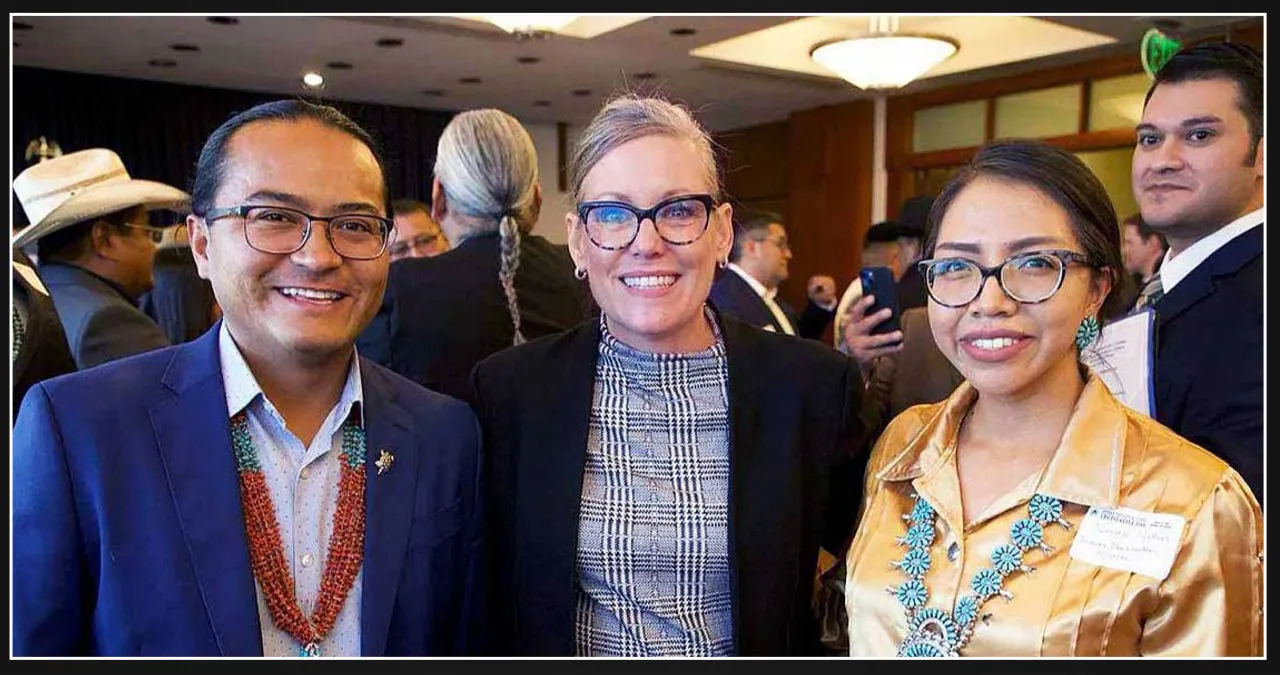Governor Katie Hobbs recently signed two significant agreements that settle water rights claims for four tribal nations in Arizona. The Northeastern Arizona Indian Water Rights Settlement Agreement (NAIWRSA) and the Yavapai-Apache Nation Water Rights Settlement Agreement (YANWRSA) have been officially endorsed by the governor. These agreements mark an important step forward in resolving longstanding water rights disputes.
The signing of the Northeastern Arizona and Yavapai-Apache tribal settlements represents a significant milestone in the journey towards ensuring dependable and sustainable water supplies for the Navajo Nation, Hopi Tribe, the San Juan Southern Paiute Tribe, and Yavapai Apache Nation.
Throughout the years, tribal members have tirelessly fought to secure water resources for their ancestral lands and bring an end to lengthy legal battles. Thanks to the exceptional efforts of the tribes, Northern Arizona communities, and the state, a resolution has been achieved and an agreement has been forged, guaranteeing water reliability for both tribal and non-tribal parties involved.
Governor Hobbs expressed his excitement about the recent agreements, stating that it is a significant moment for the State of Arizona, tribal nations, and all parties involved.
He emphasized the long-lasting impact of these agreements, as they ensure a sustainable water supply for tens of thousands of Arizonans and contribute to the thriving of local economies. Governor Hobbs proudly acknowledged the generations of Arizona families who have fought for this solution, highlighting their strength and determination.
He also reiterated his commitment to working collaboratively with Arizona’s tribal nations and safeguarding water supplies for all Arizonans.
The NAIWRSA resolves the long-standing disputes over tribal water rights to the Colorado River, the Little Colorado River, and groundwater sources in Northeastern Arizona. By providing funding for water infrastructure, this settlement aims to address the pressing issue of inadequate and unreliable water supplies for members of all three tribes. It also seeks to guarantee access to clean, running water for all residents of Arizona.
Navajo Nation President Buu Nygren expressed his gratitude to Governor Hobbs for her leadership in facilitating this groundbreaking agreement. He also acknowledged the efforts of the team at the Arizona Department of Water Resources, emphasizing their invaluable contributions. With their support, President Nygren expressed confidence in the potential to establish a consensus among the seven basin states and successfully navigate the approval process in Congress.
“We are on the brink of achieving a significant breakthrough in the realization of this momentous water settlement, largely thanks to Governor Hobbs’ unwavering dedication to ensuring water certainty in Arizona, and the tireless endeavors of Director Buschatzke and the Arizona Department of Water Resources,” expressed Timothy L. Nuvangyaoma, Chairman of the Hopi Tribe. He further added, “I hold a positive outlook that this alliance of tribal and state leaders can garner the necessary support from the remaining six basin states and successfully pass this bill within the current Congress.”
In a significant development, the San Juan Southern Paiute Tribe has been granted 5,400 acres of land through the ratification of a treaty by NAIWRSA. This marks a historic milestone for the Paiute Tribe, as they have shared territory with the Navajo Nation for the past 160 years. The passage of NAIWRSA ensures that the Paiute Tribe will have a permanent home for future generations.
Vice President Johnny Lehi Jr. of the San Juan Southern Paiute Tribe expressed deep gratitude for Governor Hobbs’ unwavering support for the Northeastern Arizona Indian Water Rights Settlement Agreement.
He emphasized that her dedication to securing the passage of the water settlement is a testament to her strong commitment to the Native American tribes in Arizona. The tribe greatly appreciates her ongoing partnership in safeguarding the cultural and environmental sustainability of their tribal homeland.
Governor Hobbs, in a significant move, has given his seal of approval to the Yavapai Apache Nation Water Rights Settlement Act (YANWRSA). This crucial legislation aims to ensure a reliable and sustainable water supply for the Yavapai Apache Nation while simultaneously safeguarding the precious Verde River.
As part of this initiative, a 60-mile water pipeline will be constructed, connecting the C.C. Cragin Reservoir on the Mogollon Rim to the Yavapai-Apache Nation. This milestone project is set to provide water certainty not only to the Nation but also to the neighboring non-tribal communities.
Chairwoman Tanya Lewis of the Yavapai-Apache Nation expressed her pride in reaching a significant milestone for their community and the Verde River. She emphasized that this comprehensive water rights settlement not only guarantees water security for their Nation but also contributes to the well-being of the Verde Valley and neighboring communities in metropolitan Phoenix. According to Lewis, the Verde River holds immense cultural significance and is vital to their way of life.
The NAIWRSA and YANWRSA are set to bring an end to the long-standing conflict and legal battles that have plagued tribes, cities, towns, farmers, and companies in Arizona since 1974. This water rights solution will finally provide a resolution for all parties involved. However, for these settlements to take effect, Congress must pass legislation to approve them and allocate funds for the necessary water projects.
Governor Hobbs has made a previous announcement expressing her dedication to collaborating with Arizona’s tribes and ensuring the availability of safe and dependable water for all residents of Arizona. Under her guidance, the State of Arizona has taken proactive measures to initiate discussions regarding tribal water rights settlements, with a strong commitment to reaching a cooperative resolution.
Additionally, Governor Hobbs has worked towards eliminating obstacles and barriers that have hindered the progress of these agreements for an extended period of time. One noteworthy achievement includes the reversal of an outdated policy that encroached upon tribal sovereignty and imposed restrictions on the acquisition of lands for tribes through the federal administrative process, which was previously a requirement for water rights settlements.

